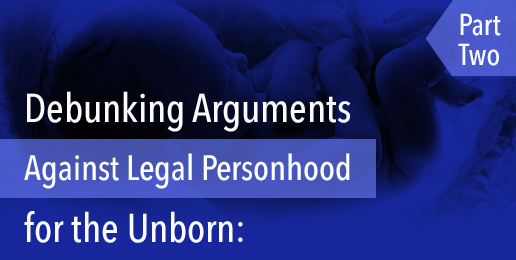
In part 1, we started working through some arguments against legally declaring the unborn to be persons. (These arguments come from a Time article published right after Dobbs came down.) But we’ve only started; let’s proceed through a couple more arguments in this piece.
Fetal personhood laws could also impact contraception access, given that some members of the anti-abortion movement argue that IUDs and the emergency contraception Plan B can prevent the implantation of a fertilized egg and violate personhood, explains Mary Ziegler, an abortion law historian at the University of California, Davis, School of Law.
Yes. Exactly. I oppose such forms of contraception precisely because they cause the death of a living human. See my comments on IVF in my previous article.
One other thing—don’t let anyone get away with calling a very young human a “fertilized egg.” That’s like calling bread “baked dough.” The bread is something completely distinct from the dough it came from; the dough has ceased to exist once the oven turns it into bread.
As pro-life philosopher Francis Beckwith argues in his book, Defending Life,
“It is a misnomer to refer to this entity as a ‘fertilized ovum.’ For both ovum and sperm, which are genetically parts of their owners, cease to exist at least at the moment of conception and perhaps earlier in the fertilization process” (p. 66).
When an egg is fertilized, it instantly becomes something other than an egg. So a human traveling down the fallopian tube is not a “fertilized egg” because there is no more egg—there is now a human.
On the other hand, if we insist on calling that very young human a “fertilized egg” (just because those were the ingredients he came from), then by the same token, everyone walking the planet is also a “fertilized egg!” Let’s just stop it.
Fetal personhood laws could also have major implications for pregnant people. If a fetus is legally considered a person, then child endangerment laws can apply. A state could potentially say pregnant people can only eat certain foods, or punish a pregnant person who is seen drinking, or compel someone to have a cesarean section they are refusing, says Kluchin.
In theory, yes.
However, as far as I would advocate for it, a fetal personhood amendment wouldn’t create any new legal categories. It simply applies an existing legal category—”person”—to a certain kind of human yet unrecognized. So, of course child endangerment laws would apply. But this isn’t much different from what we would already recognize to be true in similar situations.
If a hospital worker noticed parents putting toxins into their child’s IV machine, shouldn’t he do something about it? How is that different from a bartender refusing to serve a pregnant woman? Or the law requiring him not to?
Yet, keep in mind one very important principle that must always be present in child endangerment decisions—reasonable deference to parental discretion. We generally recognize that parents know the most about any situation regarding their children, and we generally extend trust to parents to act in the best interests of their children unless we’re faced with good evidence to the contrary.
We don’t have police officers doing weekly checkups on families, even though any particular parent could possibly be a child abuser.
So, in my opinion, a fetal personhood law should not spawn a new division of law enforcement tasked with following pregnant women around to make sure they only eat certain foods. And if a couple decides not to have a cesarean section even if it seems the best option, I believe that’s their discretion (provided their choice doesn’t imminently kill or maim the child).
The law should only step in during situations where there is clear evidence that parents are causing the death or serious injury of their unborn child. So, as I would advocate for it, a personhood law would not be a mandate for law enforcement to suddenly get more intrusive into the private life of families, but rather to address threats that do happen to surface.
And to the best of my knowledge, this is not much different from what we’d say regarding a born child.
There are a couple more arguments from the Time article that we’ll address in our next piece.
Please take a look at part 3.
























